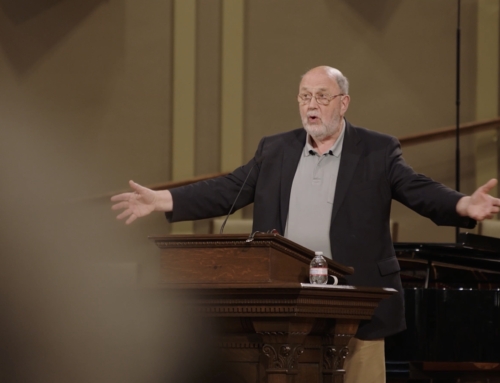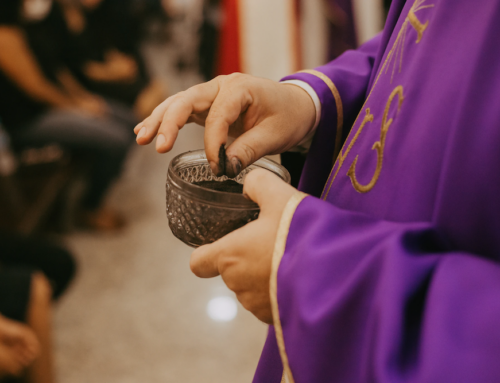Rifts or permanent splits within our ecclesial communities often cause deep and lasting wounds. Professor N.T. Wright recently shared a clip from his latest course on 1 Corinthians that offered a critique of the contemporary Church’s complicity with radical disunity. He teaches that when faced with divisions and strife in the early church, the Apostle Paul exhorted followers of Jesus to maintain unity. So, what was Paul’s urgent call as he dealt with factions and dissension within the new family of God in Corinth?
Now I must appeal to you, my brothers and sisters, through the name of King Jesus our Lord, that you should all be in agreement, and that there should be no divisions among you. Instead, you should be fully equipped with the same mind and the same opinion
1 Corinthians 1:10; Kingdom New Testament
‘No divisions’ and sharing ‘the same opinion’ may sound like a staggering challenge to post-modern ears—perhaps even downright impossible! However, it seems that there are at least three practical imperatives that emerge from the Apostle’s appeal:
- Unity is predicated on a Kingdom way of doing relationships within God’s new family.
- Unity is anchored in the name of Jesus our Lord.
- Unity is informed by the mind of Christ.
My Journey Through the Disunified Church
Admittedly, I am no expert on fostering church unity. In fact, as a child and young adult, I experienced very little ‘church’ at all. I was not raised in what many loosely characterize as a ‘Christian home’. My broken and blended families did not regularly attend church on Sundays, or on Easter or Christmas for that matter. My religious experience was limited to baptisms—Lutheran and Mormon—and a handful of Sunday school lessons.
I have a vague recollection at the age of three, of a man in a white robe sprinkling water on my face. Later, I learned that this was at a Lutheran church. When I was eight, I recall being fully dunked in what looked like a giant bathtub at the Mormon church where my Dad, stepmom, and brother and sister attended. Shortly after that experience, my Dad and his second family moved out of state. I never returned to that church, but I kept the Bible I was given, upon which my name was engraved in gold letters.
After several protracted prodigal seasons of doing mostly what seemed right in my own eyes, the Spirit began to bring me to my senses during college. Out of the blue, I asked a childhood friend if I could go to church with her. Growing up, she had never called it church; rather, it was called ‘Meeting’. For the next few months I went to Meeting with an assembly of Plymouth Brethren gathered in Oakland, CA. These kind people introduced me to Jesus and modeled a love for God, Scripture, and each other. I sang hymns and read the Bible, covered my head with a mantilla, and happily kept silent during the entire time of worship. I was baptized (again) at the age of 21 in a horse trough that was placed in the center of the meeting room. The first verse I memorized was from the Bible with my name engraved on the front: Psalm 147:3, ‘He heals the broken in heart, and bindeth up their wounds’ (KJV).
I journeyed with God and others on a circuitous path that eventually led to the church family in which he planted my husband and me today. Some of the most painful times of my ‘faith journey’ were not limited to the detours or the mistakes I regrettably made, but also involved disunity in the church. There were times when I felt ‘homeless’ and stammered when people would ask me ‘where I went to church’, because I did not have an answer.
Where to Start with Church Unity
Reflecting on some of these moments leads me to consider a question I sometimes avoid:
Has ‘church unity’ become an oxymoron, like ‘civil war’ or ‘jumbo shrimp’? I hope not. I pray not.
Where do we even begin?
Perhaps, a good first step forward might be to accept that unity will not be perfect or pain free, but that it could be possible somewhere in our corner of the Church and world. Perhaps we prayerfully ask where we might renew our commitment to begin afresh, and tread courageously, humbly, and winsomely with the Spirit’s guidance.
Maybe we start by admitting that we do not have all the answers.
Maybe we start working toward church unity by admitting that we do not have all the answers. Click To Tweet
Prof. Wright suggests that if the Apostle Paul could come back today, the thing that would most surprise him is not the Church’s disunity. Rather, he would be most surprised by our apathy. As such, we have colluded with the fact that there are many churches that don’t talk to each other, or that some do not want to acknowledge other churches as genuine Christians.
Unity is Learned
In this course, I was particularly challenged by the conclusion drawn in 1 Corinthians 1:13: If we are disunited as Christians, then what we are saying is that the Messiah has been ‘broken up into little bits’ (KNT). Prof. Wright teaches that according to Paul the way forward is all about discovering a new way to be human—a way driven by the Spirit. If we take this seriously, then the unity of the church matters! God’s Spirit lives in YOU—and in OTHERS—and we belong together. Any pulling apart of the church of Jesus the Messiah is an attempt to destroy God’s body and God’s temple.
Paul’s challenge to the church in Corinth, and the Church today, is learning and practicing unity. We must stop and ask ourselves: What is different about us now that we are Jesus’ people, and brothers and sisters of God’s family? Prof. Wright suggests that though unity is costly, complicated, and messy, it is mandatory. We must take this appeal seriously so that the opposing forces and rulers of this world take notice that there is something different—the Kingdom of God is here on earth as in heaven.
This is the message on which Paul stood as he addressed the church gathered in Corinth, and this is where he wants us to continue to take our stand today.
May our passion be reignited for truth-telling, mourning injustice, and lamenting over sin. May we be motivated towards confession, repentance, restitution, and forgiveness. May we take compassionate steps towards healing from the ways in which we have wounded each other. With the renewed hope of Jesus the Messiah, by the power of the Holy Spirit, may we be open to imagining new possibilities and horizons of reconciliation and unity.
Jennifer Loop
Latest posts by Jennifer Loop (see all)
- Why You Need Lent: Two Perspectives - February 22, 2023
- How (Not) To Understand a Parable - October 20, 2022
- What People are Saying About ‘Ethnicity, Justice and the People of God’ - February 10, 2022







